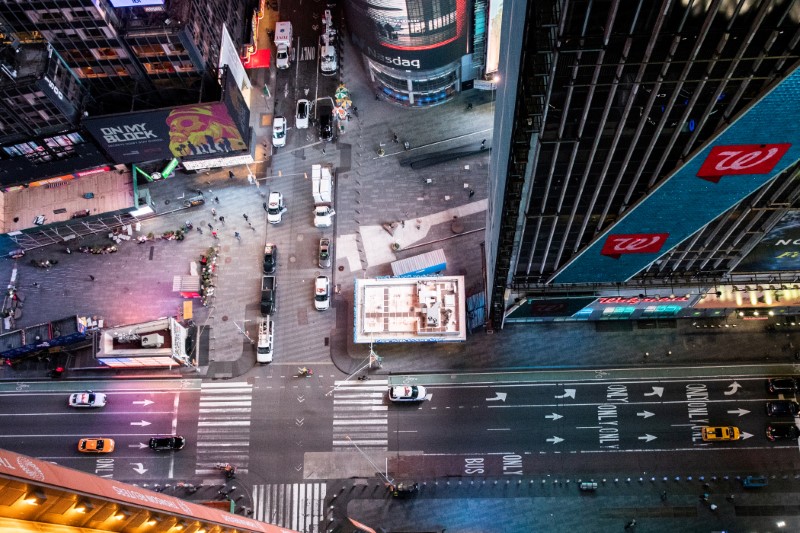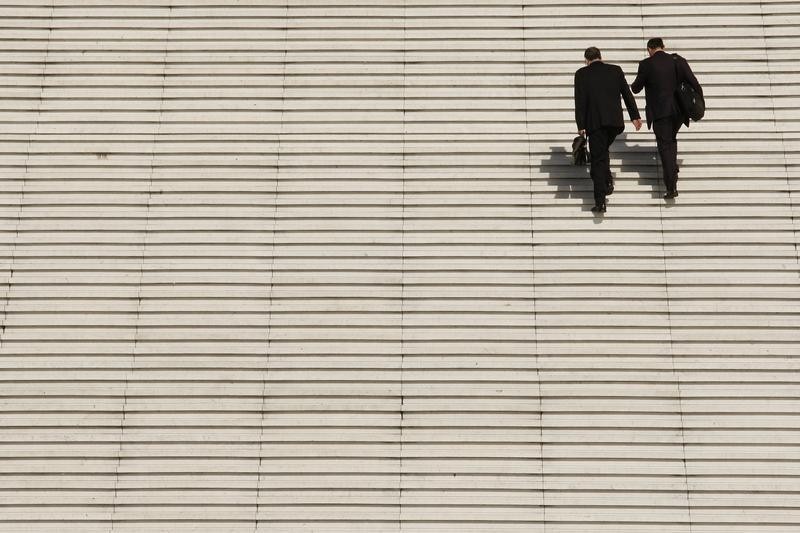By Guy Faulconbridge and Ryan Woo
LONDON/BEIJING (Reuters) - The world's wealthiest nations poured unprecedented aid into the reeling global economy on Thursday as coronavirus cases ballooned in the current epicentre Europe and London became the latest major center bracing for lockdown.
With almost 219,000 infections and more than 8,900 deaths so far, the epidemic has stunned the world and drawn comparisons with traumatic periods such as World War Two, the 2008 financial crisis and the 1918 Spanish flu.
"This is like an Egyptian plague," said Argentinian hotelier Patricia Duran, who has seen bookings dry up for her two establishments near the famous Iguazu Falls.
"The hotels are empty - tourist activity has died."
Tourism and airlines have been particularly battered, as the world's citizens hunker down to minimize contact and curb the spread of the flu-like COVID-19. But few sectors have been spared by a crisis threatening lengthy global recession.
On markets, investors have dumped assets everywhere, many switching to U.S. dollars perceived as a rare safe haven for money. Other currencies hit historic lows, with Britain's pound teetering near its weakest since 1985.
Policymakers in the United States, Europe and Asia have slashed interest rates and opened liquidity taps to try to stabilize economies left almost comatose with quarantined consumers, broken supply chains, disrupted transport and paralyzed businesses.
The virus, thought to have originated from wildlife on mainland China late last year, has jumped to 172 other nations and territories with more than 20,000 new cases reported in the past 24 hours - a new daily record.
Germany, Iran and Spain's cases hit over 12,000 each.
LONDON FACES LOCKDOWN
Britain, which had sought to take a more gradual approach to containment, was bracing for the virtual shutdown of London as underground train stations closed and schools prepared to shut their doors on Friday.
Some 20,000 military personnel were on standby to help and Queen Elizabeth was due to leave Buckingham Palace in the capital for her ancient castle at Windsor. Britain has reported 104 deaths and 2,626 cases, but scientific advisers say the real number of infections may be more than 50,000.
Supermarkets in many countries were besieged with shoppers stocking up on food staples and hygiene products. Some fixed special hours for the elderly and most vulnerable.
Solidarity projects were springing up in some of the world's poorest corners. In Kenya's Kibera slum, for example, volunteers with plastic drums and boxes of soap on motorbikes set up handwashing stations for people without clean water.
Russia reported its first coronavirus death on Thursday.
Amid the gloom, China provided a ray of hope, as it reported zero new local transmissions in a thumbs-up for its draconian containment policies since January. Imported cases, however, surged, accounting for all 34 new infections.
The United States, where President Donald Trump had initially played down the coronavirus threat, saw infections close in on 8,000 and deaths reach at least 151.
Millions of Americans were staying at home.
Trump has infuriated Beijing's communist government by rebuking it for not acting faster over the epidemic and drawn accusations of racism by labeling it the "Chinese virus".
"EXTRAORDINARY TIMES"
In the remarkable raft of financial measures around the world, the European Central Bank launched new bond purchases worth 750 billion euros ($817 billion). That brought some relief to bond markets and also halted European shares' slide, though equities remained shaky elsewhere.
"Extraordinary times require extraordinary action," ECB President Christine Lagarde said, amid concerns that the strains could tear apart the euro zone as a single currency bloc.
The U.S. Federal Reserve rolled out its third emergency credit program in two days, aimed at keeping the $3.8 trillion money market mutual fund industry functioning.
China was to unleash trillions of yuan of fiscal stimulus and South Korea pledged 50 trillion won ($39 billion).
The desperate state of industry was writ large in Detroit, where the big three automakers - Ford Motor Co (N:F), General Motors Co (N:GM) and Fiat Chrysler Automobiles NV (MI:FCHA) (N:FCAU) - confirmed they would be shutting U.S. plants, as well as factories in Canada and Mexico.
Central banks in emerging countries from Brazil to India have stepped in this week to buy government bonds to prevent a jump in borrowing costs.
With some economists fearing prolonged pain akin to the 1930s Great Depression, but others anticipating a bounce back if the coronavirus clears within months as hoped, forecasts abounded for shrinking economies.
In one of the most dire calls yet, J.P. Morgan economists forecast the Chinese economy to drop more than 40% this quarter and the U.S. economy to shrink 14% in the next.
In Brazil, where President Jair Bolsonaro initially labeled the virus "a fantasy", more members of the political elite fell ill. At night, housebound protesters banged pots and pans, shouting "Bolsonaro out!" from their windows.

(Graphic: Interactive graphic tracking global spread of coronavirus - https://graphics.reuters.com/CHINA-HEALTH-MAP/0100B59S39E/index.html)
